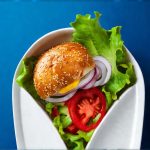Nausea is an incredibly unpleasant sensation, one that can quickly derail your day and leave you feeling utterly miserable. It’s not simply about the urge to vomit; it’s often accompanied by a host of other symptoms like dizziness, weakness, increased salivation, and a general sense of discomfort. Many things can trigger nausea – from motion sickness and food poisoning to migraines and pregnancy – and understanding how your diet impacts these flare-ups is crucial for managing the symptom effectively. Often, what seems like a comforting food during normal times can exacerbate nausea when you’re feeling unwell, making careful choices paramount. This article will delve into specific foods that are best avoided during a nausea flare-up, along with explanations of why they contribute to discomfort and suggestions for more tolerable alternatives.
The key principle is minimizing digestive stress. When your stomach is already sensitive, introducing foods that are difficult to digest or stimulate excessive acid production can quickly worsen the situation. It’s about finding gentle options that won’t further irritate your system. This isn’t a one-size-fits-all solution; individual sensitivities vary greatly. What bothers one person may not bother another. However, there are common culprits that tend to trigger nausea in many individuals, and recognizing these can empower you to make informed dietary choices during those challenging moments. Remember, even seemingly innocuous foods can be problematic when you’re experiencing a flare-up. If you suspect your nausea is related to digestive issues, it may be helpful to understand what to expect during a rectal exam for digestive symptoms.
Foods That Exacerbate Nausea
Certain food characteristics contribute more to nausea than others. High fat content is a major offender, as it requires significant digestive effort and can slow down gastric emptying – the process of moving food from your stomach to your small intestine. This delayed digestion often leads to feelings of fullness, bloating, and increased nausea. Similarly, foods with strong odors or flavors can be overwhelming when you’re sensitive. Spicy foods stimulate acid production, potentially irritating the stomach lining, while acidic foods (like citrus fruits or tomatoes) can have a similar effect. It’s also important to consider food textures; some individuals find overly chewy or fibrous foods difficult to tolerate during nausea.
Beyond specific ingredients, preparation methods matter too. Fried foods are notoriously hard on the stomach due to their high fat content and complex digestion process. Even healthy fats, when consumed in large quantities or improperly prepared, can become problematic. Think of a creamy avocado toast – delicious normally, but potentially upsetting during a flare-up. The goal is to choose foods that require minimal digestive effort and won’t overload your already stressed system. This often means opting for bland, easily digestible options over flavorful, complex meals. For those experiencing nausea related to menstruation, understanding foods to choose during menstrual bloating phases can be particularly helpful.
Ultimately, listening to your body is paramount. Pay attention to which foods consistently trigger or worsen your nausea and adjust your diet accordingly. Keeping a food diary can be incredibly helpful in identifying personal triggers. Don’t hesitate to experiment with different options – even small changes can make a significant difference in how you feel. Remember that temporary dietary restrictions are about managing symptoms, not long-term deprivation; once the flare-up subsides, you can gradually reintroduce foods as tolerated. If you’re traveling and worried about nausea, consider how to adjust your diet during travel to avoid discomfort.
Foods to Strictly Avoid During a Flare-Up
The first step in managing nausea is identifying and eliminating the most problematic food groups. Highly processed foods should be at the top of this list. These often contain artificial additives, excessive sugar, and unhealthy fats that are difficult for your digestive system to process. Think fast food, packaged snacks, and sugary cereals – these offer little nutritional value and can significantly worsen nausea symptoms. Similarly, avoid anything excessively greasy or fried; even small amounts of fried food can overwhelm a sensitive stomach.
- Foods high in fat: Fried foods, fatty meats (bacon, sausage), full-fat dairy products
- Spicy foods: Hot peppers, curry, chili powder
- Acidic foods: Citrus fruits (oranges, lemons, grapefruit), tomatoes, vinegar-based dressings
- Strong-smelling foods: Garlic, onions (for some individuals)
Another major culprit is dairy. While some people tolerate dairy well even during nausea, others find it exacerbates symptoms. This is often due to lactose intolerance or sensitivity, which can be amplified when the digestive system is already compromised. If you suspect dairy may be a trigger, try eliminating it temporarily and see if your symptoms improve. Consider alternatives like almond milk, soy milk, or oat milk. Sometimes nausea accompanies other digestive issues; knowing how to find comfort foods for a sensitive gut can provide relief.
The Role of Caffeine and Alcohol
Both caffeine and alcohol can significantly worsen nausea for several reasons. Caffeine is a stimulant that increases stomach acid production and can accelerate gastric emptying – which sounds positive but often leads to discomfort when the stomach is already sensitive. It can also contribute to dehydration, further exacerbating nausea symptoms. Even small amounts of caffeine from coffee, tea, or soda can be problematic during a flare-up. If you’re struggling with nausea, it’s best to avoid caffeine altogether until your symptoms subside.
Alcohol, on the other hand, irritates the stomach lining and disrupts digestion. It also has dehydrating effects, making nausea worse. Alcohol interferes with normal digestive processes and can lead to inflammation of the gastrointestinal tract. Even moderate alcohol consumption should be avoided during a nausea flare-up. Choosing water or herbal teas is a much gentler option for staying hydrated and soothing your stomach. If you are experiencing frequent reflux alongside nausea, what to do after a reflux flare-up to soothe your system could be helpful.
Hydration and Gentle Alternatives
While avoiding certain foods is essential, hydration is equally crucial when managing nausea. Dehydration can worsen symptoms significantly, so sipping on small amounts of clear fluids throughout the day is vital. Water is always best, but you can also try electrolyte solutions (like Pedialyte) to replenish lost minerals. Avoid sugary drinks and juices, as these can sometimes exacerbate nausea. Herbal teas, such as ginger or peppermint tea, can offer soothing relief for some individuals.
When it comes to food, focus on bland, easily digestible options. The BRAT diet – Bananas, Rice, Applesauce, Toast – is a classic recommendation for nausea because these foods are gentle on the stomach and provide essential nutrients. Other good choices include plain crackers, boiled potatoes, and clear broth. Start with small portions and gradually increase your intake as tolerated. Plain toast is often an excellent starting point; it provides carbohydrates for energy without being overly stimulating to the digestive system. Remember that everyone’s tolerance levels differ, so listen to your body and adjust your diet accordingly. If you are experiencing stomach flu symptoms alongside nausea, remember foods to avoid during stomach flu.


















